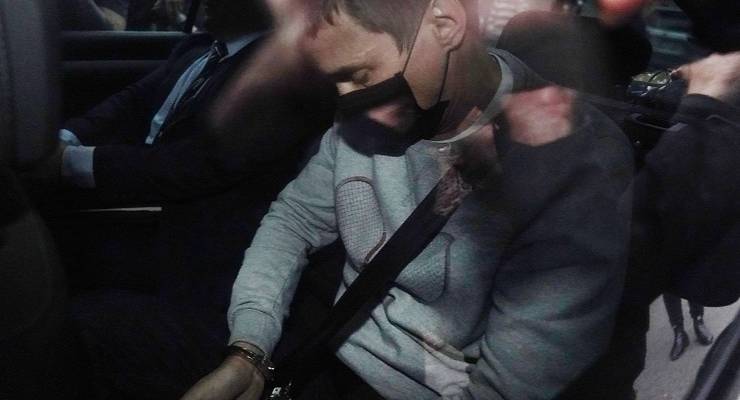
Victoria’s proposed “Pusey law”, introducing an offence of engaging in grossly offensive conduct in public, is another reactionary and “knee-jerk” criminal justice reform by the state government, civil and legal rights groups have warned.
The bill, which was debated and passed in the Victorian lower house on Thursday with bipartisan support, is in response to the conduct of Richard Pusey, who recorded the dying moments of police officers following the Eastern Freeway truck crash in early 2020.
Pusey was sentenced to 10 months’ imprisonment for, among other things, “outraging public decency”, an offence that has only been used six times and hasn’t been used in decades.
The new law creates a new statutory offence of engaging in conduct that is grossly offensive to community standards of behaviour, with an associated maximum prison sentence of five years.
The legislation has the support of the Victorian opposition and will sail through Parliament.
But a number of high-profile organisations, including Liberty Victoria and the Victorian Aboriginal Legal Service, along with criminal defence firms, have urged the state government to abandon it.
They argue that the new offence is redundant and would disproportionately impact marginalised people in the state who are already over-represented in the criminal justice system.
Doogue + George associate Isabelle Skaburskis labelled the reform an “impulsive, rash reaction to an extreme outlier event”.
“To take a situation that’s so exceptional and so rare that it doesn’t quite fit into the law and try to make a general principle from that will be inherently problematic,” Skaburskis says.
The Victorian Labor government says the new offence will protect the public from the “most extreme examples of seriously offensive conduct”.
To be charged with the offence, the individual must know that, or be reckless as to whether, their conduct is likely to be seen or heard by someone, and to know that it would likely grossly offend community standards of acceptable conduct. The legislation provides an exception for artistic and academic work, political expression, work in the public interest and fair and accurate reporting.
Greens MP Tim Read raised his concerns the bill would disproportionately be applied to the “most vulnerable”.
“It is not hard to imagine someone being grossly offensive if they are mentally unwell and under stress. It’s hard to imagine this law being used fairly … it seems reasonable to fear that it’ll be applied unreasonably,” Read said.
Liberty Victoria has made a submission to the government urging for the law to be scrapped.
“There’s a pattern of high-profile cases which community outrage has driven which are then used as a springboard for reforms,” Liberty Victoria CEO Michael Stanton says. “The problem is that often the reforms cast the net very widely and don’t remedy the particular system failures but actually sweep up a whole lot of people that then become affected by those changes.”
Following the murder of Jill Meagher by Adrian Bayley, the Victorian government passed a raft of changes to the state’s parole system. After the James Gargasoulas Bourke Street attack, the Andrews government quickly made the state’s bail conditions far stricter.
While both of these reforms were made in response to the violent actions of men, the changes made to parole and bail laws have been proven to have disproportionately impacted women and Indigenous peoples.
There is now a concern that the new “Pusey law” will have a similar unintended consequence.
“There are existing laws that deal with such conduct,” Victorian Aboriginal Legal Service CEO Nerita Waight says. “A new law will disproportionately impact Aboriginal and/or Torres Strait Islander people, as well as other over-policed communities such as LGBTIQIA+ people, people with a disability and people from culturally and linguistically diverse backgrounds.”
On top of these concerns, the new offence is entirely redundant, according to these legal experts.
“You’ve had the government come out and say ‘we can’t really envisage this being used’,” Staton says. “If that’s the case, then why legislate for it at all?”
The legislation contains no definitions of what “grossly offensive conduct” may entail, so its enforcement would likely be highly subjective, Stanton says.
The Victorian election will be held in November, and the new Pusey law has reignited concerns it will again be fought on “tough on crime” lines.
“It’s effectively populist,” Skaburskis says. “It’s riding on a wave of a high-profile and explosive situation, and the government is looking for ways to use the criminal law to bolster their public appeal.”
Is the ‘Pusey law’ one that could be misused or exploited? Let us know your thoughts by writing to letters@crikey.com.au. Please include your full name to be considered for publication. We reserve the right to edit for length and clarity.








“Hard cases make bad law” was a familiar saying to a judge who mentioned it in 1837. The US Supreme Court Justice Oliver Wendell Holmes in 1904 quoted it, “Great cases like hard cases make bad law. For great cases are called great, not by reason of their importance… but because of some accident of immediate overwhelming interest which appeals to the feelings and distorts the judgment.”
This law is another great example. Of course there is no need for more legislation arising from Pusey’s disgusting actions. This law is being made for bad reasons and will do harm while very likely doing no good. Shame on the Victorian government for proposing it and on the parliament for passing it.
Nothing beats a moral panic beat-up when it comes to creating bad legisalation.
Gillard actually said, re eyeball tattooing & planking, “We may need to legislate.”
Agreed SSR except for your comment ‘disgusting’ regarding Pusey’s actions of recording and commenting on the accident scene on his mobile phone.
The Victorian government’s over reach on Pusey’s punishment on his actions post accident has been vindictive to the extreme that its worthy of a challenge that he was convicted on something that wasn’t a crime.
Being disgusting isn’t a crime. So how are we not in agreement here?
Thank you SSR. Our descent into a narcissistic dystopia continues. Duty of care to render assistance obviously doesn’t extend to road users. Oh wait.
Was Neil Davis’s 1975 filming of the summary road side execution of a Viet Cong insurgent morally outrageous? At least the blood spray was air brushed out to lessen the offensive vision.
Next stop, social credit ratings for official vilification of those who transgress whose social norms?
See the Black Mirror episode NOSEDIVE (3rd series, #1) – from 2016 before social credit was a ‘thing’.
This law is just made to be abused. It’s all very subjective.
It will be, the only question is how long it will take and what action will be deemed so egregious as to invoke it.
I’m betting Extinction Rebellion or similar will be the target.
Laws like this – the NSW one-punch-while-drunk law being another example – need to be kicked to the curb. Let the overarching framework of law take its course.
So Morrison, being grossly offensive in worshiping a lump of coal in Parliament, is exempt via `political expression’.
And they’ve recently passed a law criminalising environmental and other anti-Government protests. Mainly aimed at people who don’t agree with cowboy outfit, VicForests, strip mining Victoria’s remaining forests.